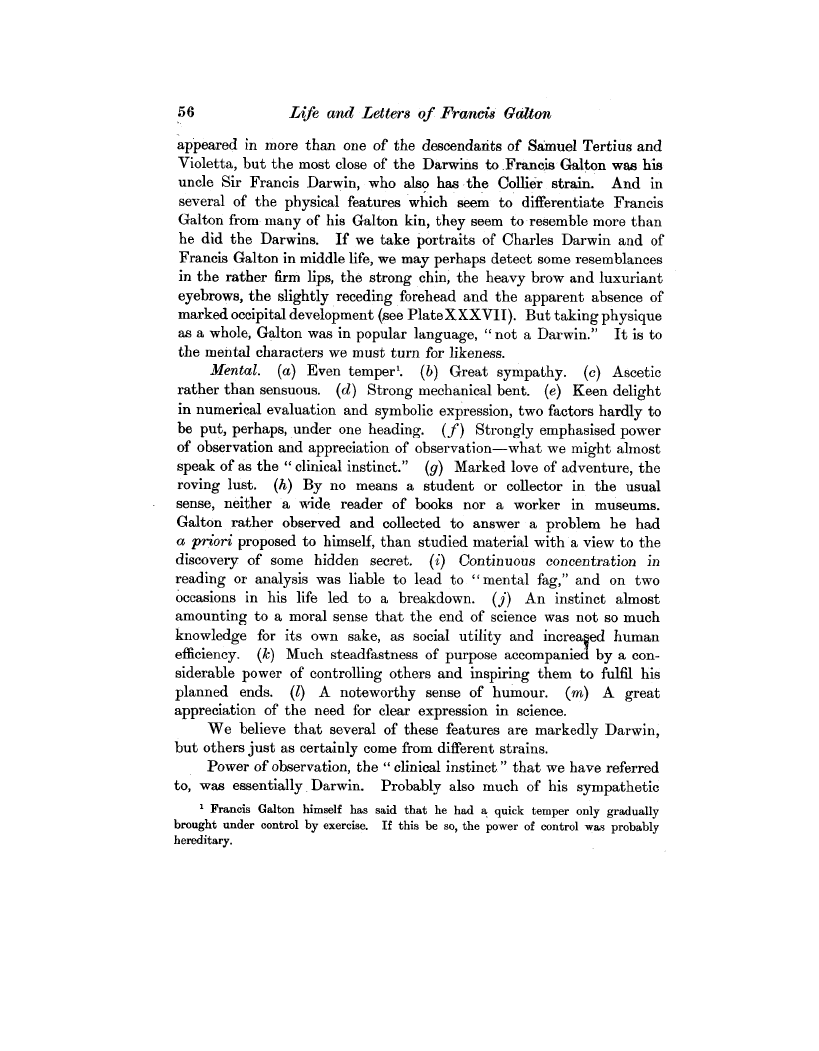| ||||||

OCR Rendition - approximate
56 Life and Letters of Francis Galton appeared in more than one of the descendants of Samuel Tertius and Violetta, but the most close of the Darwins to.Francis Galton was his uncle Sir Francis Darwin, who also has the Collier strain. And in several of the physical features which seem to differentiate Francis Galton from many of his Galton kin, they seem to resemble more than he did the Darwins. If we take portraits of Charles Darwin and of Francis Galton in middle life, we may perhaps detect some resemblances in the rather firm lips, the strong chin, the heavy brow and luxuriant eyebrows, the slightly receding forehead and the apparent absence of marked occipital development (see Plate XXXVII). But taking physique as a whole, Galton was in popular language, " not a Darwin." It is to the mental characters we must turn for likeness. Mental. (a) Even temper'. (b) Great sympathy. (c) Ascetic rather than sensuous. (d) Strong mechanical bent. (e) Keen delight in numerical evaluation and symbolic expression, two factors hardly to be put, perhaps, under one heading. (f) Strongly emphasised power of observation and appreciation of observation-what we might almost speak of as the " clinical instinct." (g) Marked love of adventure, the roving lust. (h) By no means a student or collector in the usual sense, neither a wide. reader of books nor a worker in museums. Galton rather observed and collected to answer a problem he had a priori proposed to himself, than studied material with a view to the discovery of some hidden secret. (i) Continuous concentration in reading or analysis was liable to lead to " mental fag," and on two occasions in his life led to a breakdown. (j) An instinct almost amounting to a moral sense that the end of science was not so much knowledge for its own sake, as social utility and increaVed human efficiency. (k) Much steadfastness of purpose accompanied by a considerable power of controlling others and inspiring them to fulfil his planned ends. (1) A noteworthy sense of humour. (m) A great appreciation of the need for clear expression in science. We believe that several of these features are markedly Darwin, but others just as certainly come from different strains. Power of observation, the " clinical instinct " that we have referred to, was essentially. Darwin. Probably also much of his sympathetic 1 Francis Galton himself has said that he had a quick temper only gradually brought under control by exercise. If this be so, the power of control was probably hereditary.
|